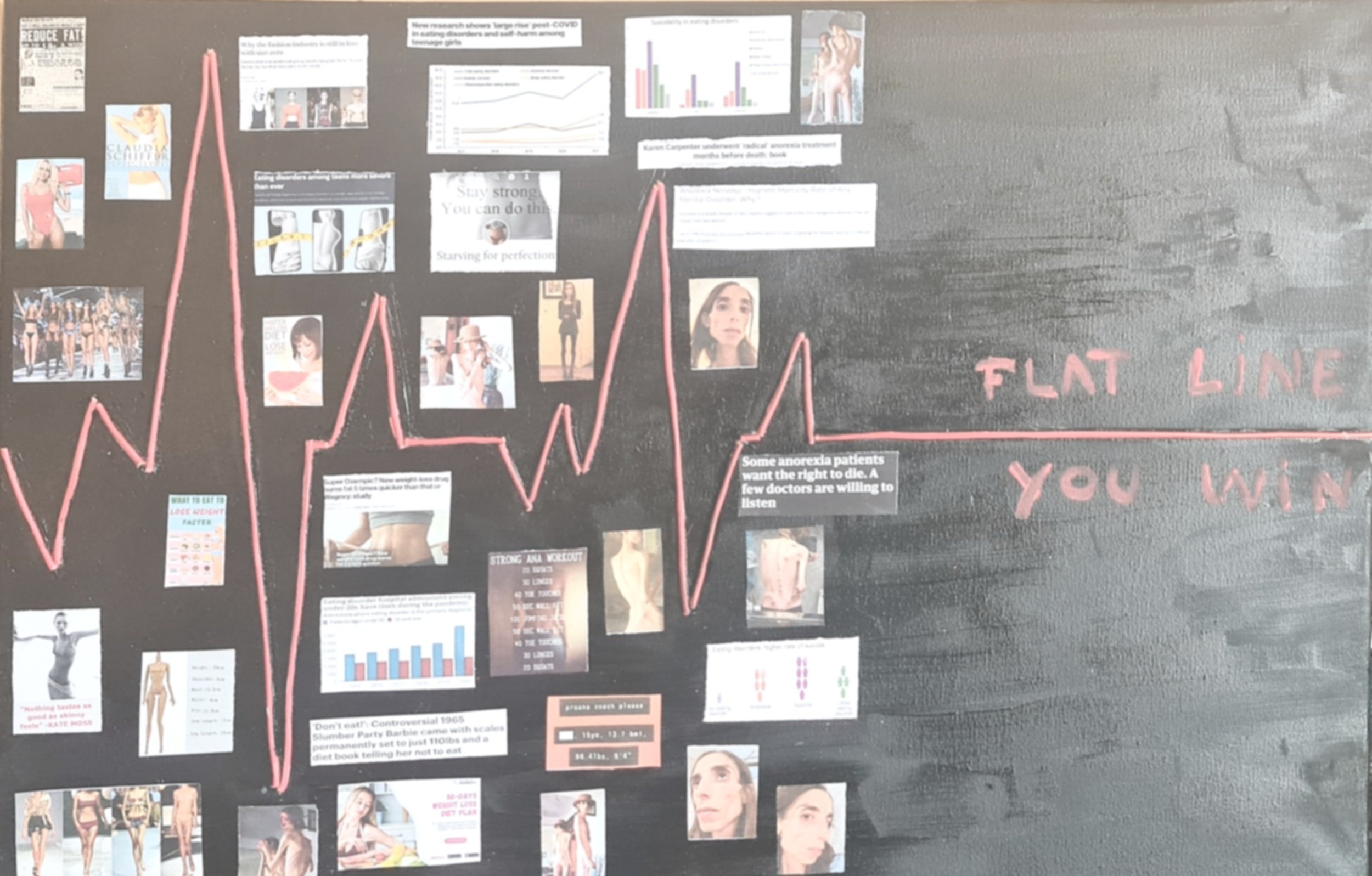
On paper, in my circles, I am perfect. In reality, I am trying to come back from the edge of death.
My quest for perfection and control was about to kill me.
I am a multilingual Harvard Business School graduate. A social impact entrepreneur who worked at Merrill Lynch, Bain & Co., Google, and MIT. A Moroccan national medalist in cross-country running and horse riding. This is my resume.
At 33 years old, I was 50 pounds (23 kg), 5.25 feet (160 cm). After a couple of hospital stays and years of interventions, I had to check myself into a 24-hour facility to save my life after 20 years of anorexia. I am lucky – one-fifth of others at this juncture are already dead. For some of us, it is genetic.
After years of trying to fulfill my need for controlled perfectionism by sacrificing myself at the altars of academic, esthetic, and professional ideals, I decided to stop pretending that I could manage my emotional disorder and surrender control to experts.
I am just one of 70 million individuals struggling with eating disorders worldwide. In the U.S., 30 million will have one in their lifetime. One in four will attempt suicide. Of all mental illnesses, eating disorders take the most lives. The death toll is second only to the opioid epidemic.
The omnipresence of social media in our daily lives is just increasing this eating disorder pandemic. Wall Street Journal investigations into Facebook confirm what studies highlighted years ago -- the positive association between social media use and eating disorders.
However, eating disorders are not limited to body-conscious teenage girls. They also affect high achiever Type-A women. Indeed, according to research, female high-achievers tend to meet their need for perfection and compensate for the negative emotions from stress and failure with the positive feelings they experienced by controlling their diet.
In this profile, there is me. There could also be you or anyone among your family, friends, or coworkers.
The issue is not about Facebook. We can’t accuse social media of soaring exam anxiety, fanaticism over grades, and increased work-related illnesses. In a society ruled by the principles of perfectionism, every exam, meeting, pitch, essay, or Instagram selfie is an opportunity to fail. How did we get to this?
THE COST OF PERFECTION
The proportion of people exhibiting traits of perfectionism rose more than 30% in the past few decades. ‘Destructive perfectionism’ or ‘maladaptive perfectionism’ leads to higher levels of depression, anxiety, stress, and in particular, suicide and eating disorders: while studies found that more than 70% of young people who died by suicide were in the habit of creating “exceedingly high” expectations of themselves, measures of excessive performance-based perfectionism are considerably higher in people with anorexia than in healthy groups.
We are under the imperative to find a purpose and a place in a world of appearances, etiquettes – and, increasingly, screens. A world encouraging us to self-objectify and to hold on ‘ready to wear’ identities, becoming objects of appetite for others, reducing our humanity to a single characteristic, stereotypes, and thus encouraging others to do so as well. We compete in marketing ourselves in a society where anything less than perfect seems to be a failure.
And in this race, I forgot that I had a body and a mind. I just thought that I could keep running without gas and on flat tires. On the altar of perfection, I sacrificed myself. For the sake of social existence, I ceased to exist. As my body was shrinking into bones, I slowly disappeared. Until I broke down.
Today I am recovering. Without expectations to be perfect or any race to prepare. I certainly feel lost without all the established principles paving my path. But I am in true life, not in a perfect projection.
STOP PRETENDING
I know it is hard to resist the bewitching songs of the sirens of perfection. We probably navigate into different directions and with distinct crews. But most probably, we will all encounter these sirens whispering in our ears – or perhaps even be the ones whispering. At that stage, I would invite you to be honest and ask yourself: Who is really guiding your ship? Are you truly the captain on board? From whom, in addition to yourself, do you expect perfection? Family, friends, leaders? Will you pick them up when they fall?
Don’t be lured - and most importantly, don’t lure yourself. You can’t ditch you. But you can smother the flame of life in yourself and others.
Today I share my story. I am trying to save myself by stopping to pretend. If you are on my path, will you?
THE END OF PRETENDING


